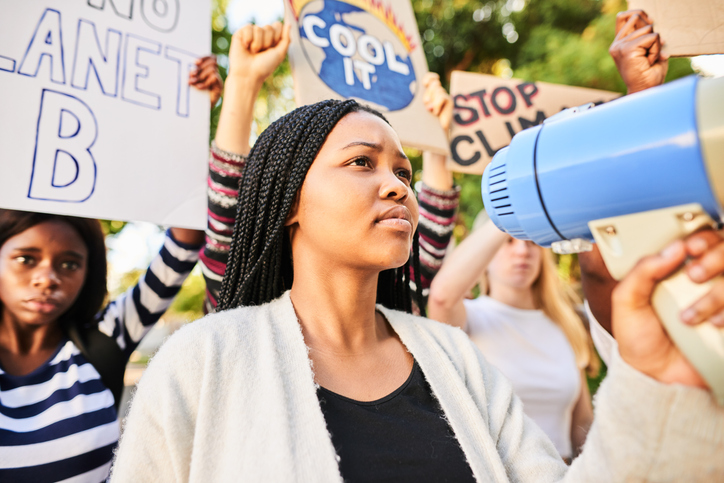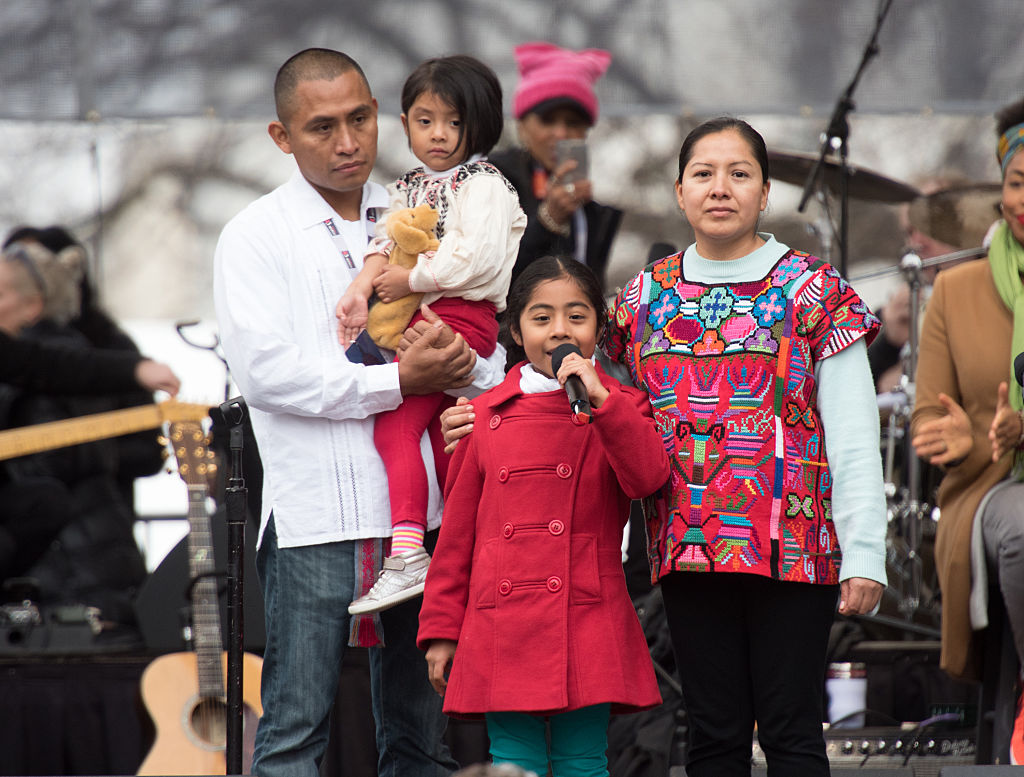
Source: AJ_Watt / Getty
You may hear statements “Children are the future” or “This new generation is going to save the planet” and look at young children glued to their phones, creating TikTok dances and wonder how the digital generation will address issues of poverty, social unrest, economic divide, political divide, racism, trans hate and all of the other horrors that plague the world. But then, there are those few who rise up and show you that a passion for change can start early.
There’s something powerful about seeing children do advocacy work and there are many out there taking up urgent causes. MADAMENOIRE shines a light on youth activists who, in the spirit of Dr. Martin Luther King Jr., advocate for social justice.
Thandiwe Abdullah
When she was barely 10 years old, Thandiwe Abdullah helped launch the Black Lives Matter Youth Vanguard, a generation of Black activists determined to get the message of the Black Lives Matter movement into schools. Activism goes back even further for Abdullah, though, who attended her first protest at age two with her mother. At age six, she marched with her mother in Oakland following the killing of Oscar Grant. Abdullah was raised in a household of activists so creating the Black Lives Matter Youth Vanguard movement was a natural next step for her. During the Defund the Police movement, Abdullah was focusing on removing police from schools and ending random searches. That is just one way she focuses on connecting the BLM movement to youth.
Zuriel Oduwole
Zuriel Oduwole is on a mission to make sure that Black children around the world attend school. At age 10, she started the foundation Her Dream Up, Speak Up, Stand Up which aims to encourage African girls to go to school. The aspiring filmmaker took a trip to Ghana to work on a film and was profoundly impacted by the number of children who were not in school because their parents could not afford their uniforms or supplies. Her Twitter bio states that she has met with “48,830 youths in 19 countries” and spoken with 31 presidents to talk about political issues.
Mari Copeny
At just 10 years old, Mari Copeny wrote a letter to President Barack Obama, asking if he’d take a meeting with her to discuss the Flint water crisis. Roughly 100,000 residents of Flint, Michigan – a predominantly Black, low-income region – has been exposed to toxic levels of lead due to lead piping in the area. That was in 2014. Copeny is still vocal and active in civil and social justice. She started #WednesdaysForWater on Twitter, through which, each Wednesday, she shares a place that needs clean water and how the public can help. Her Twitter bio says “Future President.” She regularly posts about the dangers of lead contamination to water and issues with the education system.
Yolanda Renee King
Yolanda Renee King is the granddaughter of Martin Luther King Jr. and had an op-ed piece published in Teen Vogue about voter suppression and why she marches. Her piece is remarkably eloquently written for a 13-year-old, and talks about the dangers of voter suppression bills that have already been passed keeping young people and Black Americans from voting. The piece mentions her grandmother, who personally campaigned to make MLK Day a holiday when President Reagan had opposed the King Bill. Young Ms. King also speaks directly to policymakers in her piece, asking them whether they’re just here for power or to use their platform for good, and stating that if it’s the latter, the voices of Black Americans cannot be silenced.
Marley Dias
Marley Dias is working to bring attention to the lack of diversity in school curriculums. After growing tired of reading stories that predominantly featured white boys, Dias started the #1000BlackGirlBooks movement, aimed at collecting books that featured characters who looked like her. She successfully collected 9,000 books to distribute to young Black girls. Her activism earned Dias the “Dream Big Award.” She continues to collect books that she donates to low-income countries and she even wrote her own book – “Marley Dias Gets It Done: And So Can You!” Dias is the host of the Netflix series “Bookmarks: Celebrating Black Voices.”
Sophie Cruz

Source: Noam Galai / Getty
At age five, Sophie Cruz got around security and delivered a handwritten note to Pope Francis, asking him to support the Deferred Action for Parents of Americans program, which would allow those who immigrated here illegally but now have American-born children to remain in America. Cruz’s parents are undocumented immigrants from Oaxaca, Mexico. In 2016, President Barack Obama invited Ms. Cruz to the White House to celebrate Cinco de Mayo. Cruz and her family were featured in a short film called “Free Like the Birds” that debuted at the Tribeca Film Festival. In 2017, Cruz went on to be the featured speaker at the Women’s March on Washington D.C. She was seven years old.
Kenidra Woods
Kendira Woods has been doing advocacy work since she was just 13 years old. Woods is the founder of the Hope for Humanity Project, which is focusing on providing affordable housing to underserved communities. She’s organized several rallies, including the Hope for Humanity Project: Rally for Peace in her hometown of St. Louis and a rally in response to gun violence. At the rally against gun violence, Woods had organized for several influential speakers to speak, including Congressional candidate Cori Bush and a leader for the Moms Demand Action for Gun Sense in America.
0 Commentaires